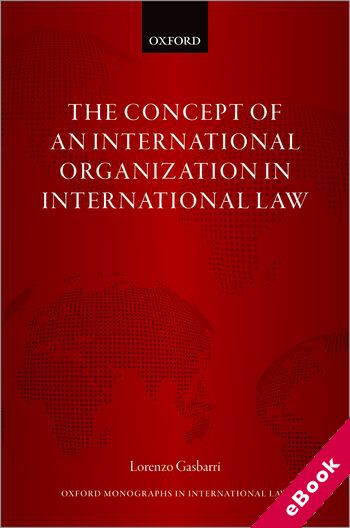
The device(s) you use to access the eBook content must be authorized with an Adobe ID before you download the product otherwise it will fail to register correctly.
For further information see https://www.wildy.com/ebook-formats
Once the order is confirmed an automated e-mail will be sent to you to allow you to download the eBook.
All eBooks are supplied firm sale and cannot be returned. If you believe there is a fault with your eBook then contact us on ebooks@wildy.com and we will help in resolving the issue. This does not affect your statutory rights.
Despite their exponential growth in number and activities, there is not an established legal concept of an international organization. This book tackles the topic by examining the nature of the legal systems developed by international organizations. It is the first comprehensive study of the concepts by which international organizations' legal systems are commonly understood: functionalism, constitutionalism, exceptionalism, and informalism. Its purpose is threefold: to trace the historical origins of the different concepts of an international organization, to describe four groups under which these different notions can be aligned, and to propose a theory which defines international organizations as 'dual entities'. The concept of an international organization is defined by looking at the nature of the legal systems they develop. The notion of 'dual legal nature' describes how organizations create particular legal systems that derive from international law. This situation affects the law they produce, which is international and internal at the same time. The effects of the dual legal nature are considered by analysing international responsibility, the law of treaties, and the validity of organizations' acts.